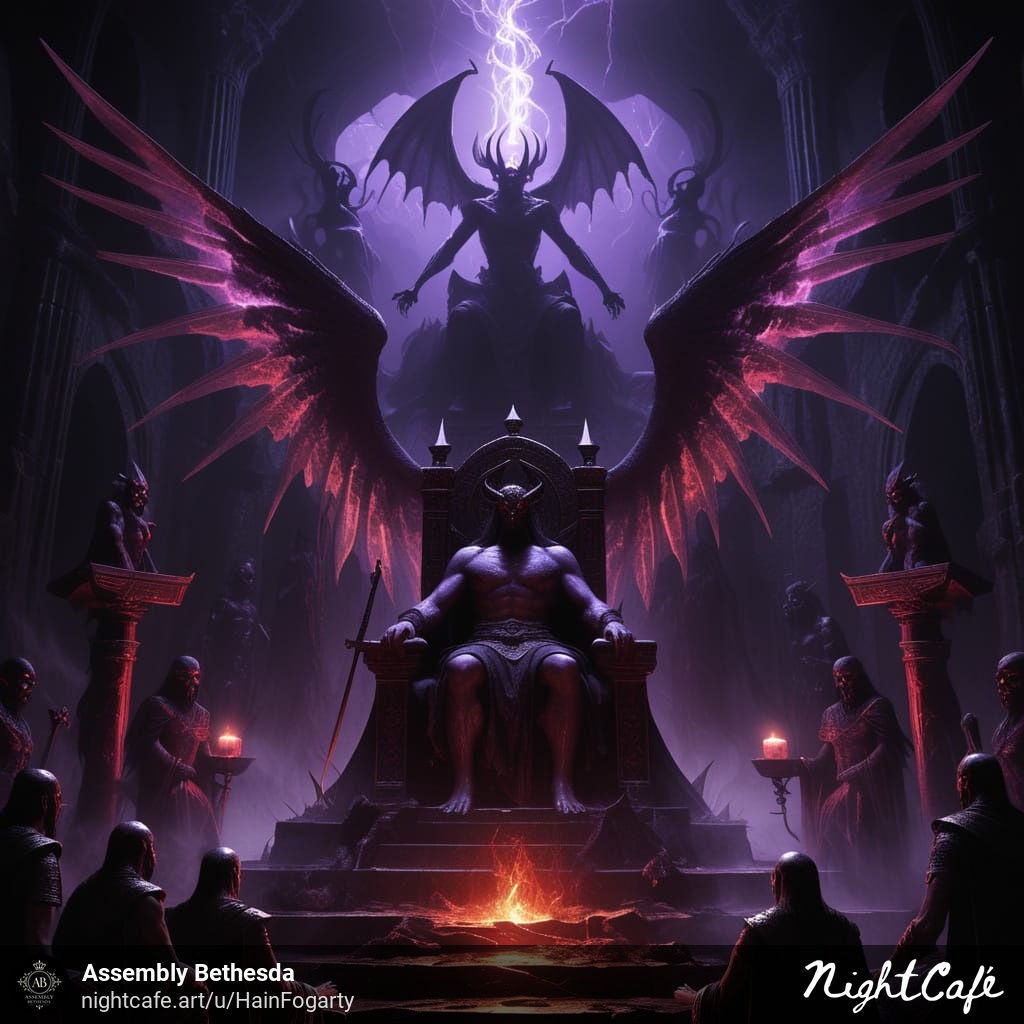A vivid picture of the Christian life is presented by the Apostle Paul in his letter to the Ephesians, where the real enemy is not human, but supernatural. Ephesians 6:12 states, “We do not struggle against flesh and blood but against rulers, authorities, cosmic powers over this present darkness, and spiritual forces of evil in the heavenly places.” A cosmic hierarchy of spiritual beings is revealed in this verse, often quoted, known as “principalities and powers,” terms derived from the Greek terms arch (rulers) and exousia (authorities). Angelic and demonic entities operate in an unseen realm, having a profound influence on the world at large.
The Biblical Foundation
Scripture repeatedly references these powers. Colossians 1:16 states that Christ created all things, “whether thrones or dominions or rulers or authorities,” affirming their origin in God’s design. Yet, Colossians 2:15 celebrates Christ’s triumph, noting that He “disarmed the rulers and authorities and put them to open shame, by triumphing over them in Him.” Romans 8:38-39 assures believers that neither “angels nor rulers, nor powers” can separate them from God’s love.
Even Ephesians 3:10 reveals that the church’s unity display God’s wisdom in referring to these “rulers and authorities in the heavenly places.” In Titus 3:1, Paul uses similar terms for human authorities, showing their dual application to earthly and spiritual governance.
Understanding Principalities and Powers
Theologically, principalities (archē) are high-ranking spiritual beings, like generals in a celestial army, overseeing vast domains such as nations or ideologies. In Daniel 10:13, the “prince of Persia” exemplifies a demonic principality that influences earthly empires. A power (exousia) enforces the will of a principality through deception, temptation, or systemic evil, and is delegated authority.
As originally created good beings, these beings rebelled with Satan (Isaiah 14:12-15; Revelation 12:7-9), forming a counterfeit hierarchy opposed to God’s.
Using Paul’s cosmology, reality is divided into visible and invisible realms. The heavenly places where these powers operate are not heaven itself but a spiritual dimension influencing earth. They blind minds to the gospel (2 Corinthians 4:4), fuel societal injustices, and oppose the church’s mission.
However, their power is limited, Christ’s cross has already rendered them powerless, and believers are called to resist through the “armor of God” (Ephesians 6:13-18), truth, righteousness, faith, salvation, and God’s Word.
The Church’s Role and Victory
The church, as God’s redeemed community, plays a unique role. Ephesians 3:10 suggests that its unity and love shame these powers, demonstrating God’s wisdom. The final defeat of demons is ensured by Christ’s ultimate victory at His return (Revelation 20:10). Believers do not fight directly against demons but rather by standing firm, spreading the gospel, and living faithfully.
Modern Relevance
According to some theologians, such as Walter Wink, principalities and powers are spiritual forces causing institutions, racism, greed, or oppression, whereas evangelicals emphasize personal spiritual warfare. There is no doubt that Christians live in a world influenced by spiritual forces, but Christ’s lordship guarantees victory. No power is capable of severing God’s love for His people, as Romans 8:38-39 promises.
In a world of chaos and confusion, Ephesians 6:12 calls believers to discernment, courage, and dependency on Christ. The battle is real, but the outcome is secure. For further study, explore commentaries on Ephesians to deepen your understanding of this cosmic conflict.
Until next time. be blessed and Courage.

